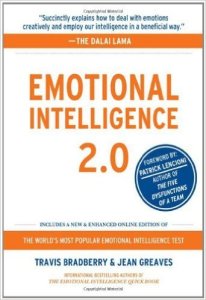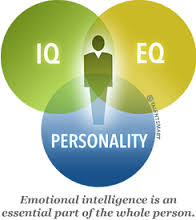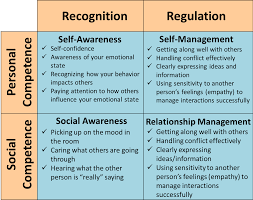 As regular readers of this blog know, I’ve been on an assessment binge as of late that is leading up to some work around visioning, goal setting, and strategy and tactics development. The assessment work has been both personal and business related. You can read more about my motivations and thoughts in a post I published last week titled “New year starts with a little assessment work“.
As regular readers of this blog know, I’ve been on an assessment binge as of late that is leading up to some work around visioning, goal setting, and strategy and tactics development. The assessment work has been both personal and business related. You can read more about my motivations and thoughts in a post I published last week titled “New year starts with a little assessment work“.
A few days ago I confessed to struggling with the personal assessment side of this exercise until I purchased two books:
- StandOut 2.0
- Emotional Intelligence 2.0
My last post — “StandOut 2.0 as an assessment tool for growth, team building and direction setting” — I talked all about:
- the nine strength roles identified by Marcus Buckingham
- the assessment tool that helped me identify my top two strengths
- the importance of focusing on and leveraging your top two strengths
- how to use this tool to assist with questions related to organizational development and team building
In this post, I’m focusing on my second book purchase — “Emotional Intelligence 2.0” — and what I’m learning and why I think it is relevant to your work.
 Some of you might be wondering, “What is the world is emotional intelligence?” and the answer is somewhat complex because it involves brain science.
Some of you might be wondering, “What is the world is emotional intelligence?” and the answer is somewhat complex because it involves brain science.
Here is how Google explains it:
“the capacity to be aware of, control, and express one’s emotions, and to handle interpersonal relationships judiciously and empathetically.”
Here is what the authors of the book say:
“The communication between your emotional and rational ‘brains’ is the physical source of emotional intelligence.“
If you are a science-geek, then I encourage you to read the book where you can learn more about your spinal cord, limbic system and frontal lobe. In all honesty, it really is fascinating stuff.
I chose to incorporate the idea of emotional intelligence (EQ) into my New Years personal and professional assessment exercise in addition to the strength roles evaluation work found in the StandOut 2.o book because experts are learning it plays a large role in our professional life and our successes. Don’t believe me? Here are a few factoid that I’m quoting from the book:
- “EQ is so critical to success that it accounts for 58 percent of performance in all types of jobs.“
- “The link between EQ and earnings is so direct that every point increase in EQ adds $1,300 to an annual salary.“
What I’m banking on is that I can grow my non-profit practice, The Healthy Non-Profit LLC, by improving my EQ and aligning my work better with my strengths. I suspect you can do the same thing when it comes to your non-profit organization.
Back to the book . . .
There are four emotional intelligence skills, and they pair up as follows:

The book does far more explaining of these skills that I simply can’t and won’t get into today. I encourage you to purchase and read the book if this subject interests you.
What I will say for the purposes of this blog post is there is an online EQ assessment that people who purchase the book can access. It scores you in each of these four EQ skills areas and produces exercises designed to help you improve your EQ scores.
Unlike your IQ, which is not something you can change, your EQ can be developed and improved.
I was debating whether or not to share my scores with the blogosphere, and I decided not to. Needless to say, assessment is a humbling experience and my scores are a little lower that I would like. However, I will share that my assessment results convinced me to start working on my “listening skills” (which is social awareness strategy #11 spelled out on pages 160-161).
After I get this habit established, I will probably add an “empathy” exercise into the mix where I’ll try to pay attention to other people’s feelings more.
So, you are probably wondering how this assessment tool might benefit you and your organization. Here are a few thoughts:
- If you are sometimes concerned that you don’t have a good handle on where you team is at or what it is feeling, then you might want to assess and work on your EQ
- If a member of your team likes to push other teammates’ buttons, then incorporating a few self-management exercises into that person’s individual development plan (IDP) might make sense
- If a member of your team is someone who constantly “speaks their mind” and everyone else reacts poorly, then you may need to help them develop their social awareness skills (additionally, you may need to teach the team to speak directly to this teammate’s feelings and not just what they are saying)
In short, improving your EQ could:
- make you a more effective and productive person in the workplace
- help you become a better coach to your team
Have you used this tool or others like it? If so, please scroll down to the comment box and share your thoughts and experiences. We can all learn from each other.
Here’s to your health!
Erik Anderson
Founder & President, The Healthy Non-Profit LLC
www.thehealthynonprofit.com
erik@thehealthynonprofit.com
http://twitter.com/#!/eanderson847
http://www.facebook.com/eanderson847
http://www.linkedin.com/in/erikanderson847
